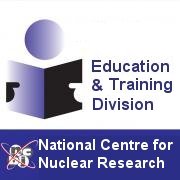Far from equilibrium superfluid dynamics of strongly interacting Fermi systems
2020.01.16 13:18 - Anna RędaszekMost of known fermionic systems become superfluid (or superconducting if particles are charged) at sufficiently low temperatures. They include electrons in metal, nuclear systems like nuclei or neutron stars, and also ultra-cold atomic gases. Developments of last decade, both theoretical and computational, resulted in an accurate and numerically tractable formulation of superfluid Density Functional Theory, known presently as time-dependent superfluid local density approximation (TDSLDA). The method allows for studies of superfluid dynamics of strongly interacting fermionic systems (like nuclei, neutron matter, ultra-cold atomic gases at Feshbach resonance) driven far from equilibrium. I will review recent applications of TDSLDA to superfluid Fermi systems, including dynamics of nuclear matter in neutron stars and dynamics of topological excitations in ultra-cold atomic clouds. Recent developments allowed us also to extend the approach towards spin-imbalanced systems. Exploring this new degree of freedom for strongly interacting atomic gases (spin-polarization) brings us into a terra incognita - a field where new phases can appear and qualitative new effects emerge. As example, I will present prediction of existence a new surprisingly long-lived excitation mode consisting of a spin-polarized region characterized by a peculiar structure of the superfluid order parameter..
Serdecznie zapraszamy,
M. Kowal, W. Piechocki, J. Skalski, L. Szymanowski
| Attachment | Size |
|---|---|
| 32.5 KB | |
| 187.02 KB |













